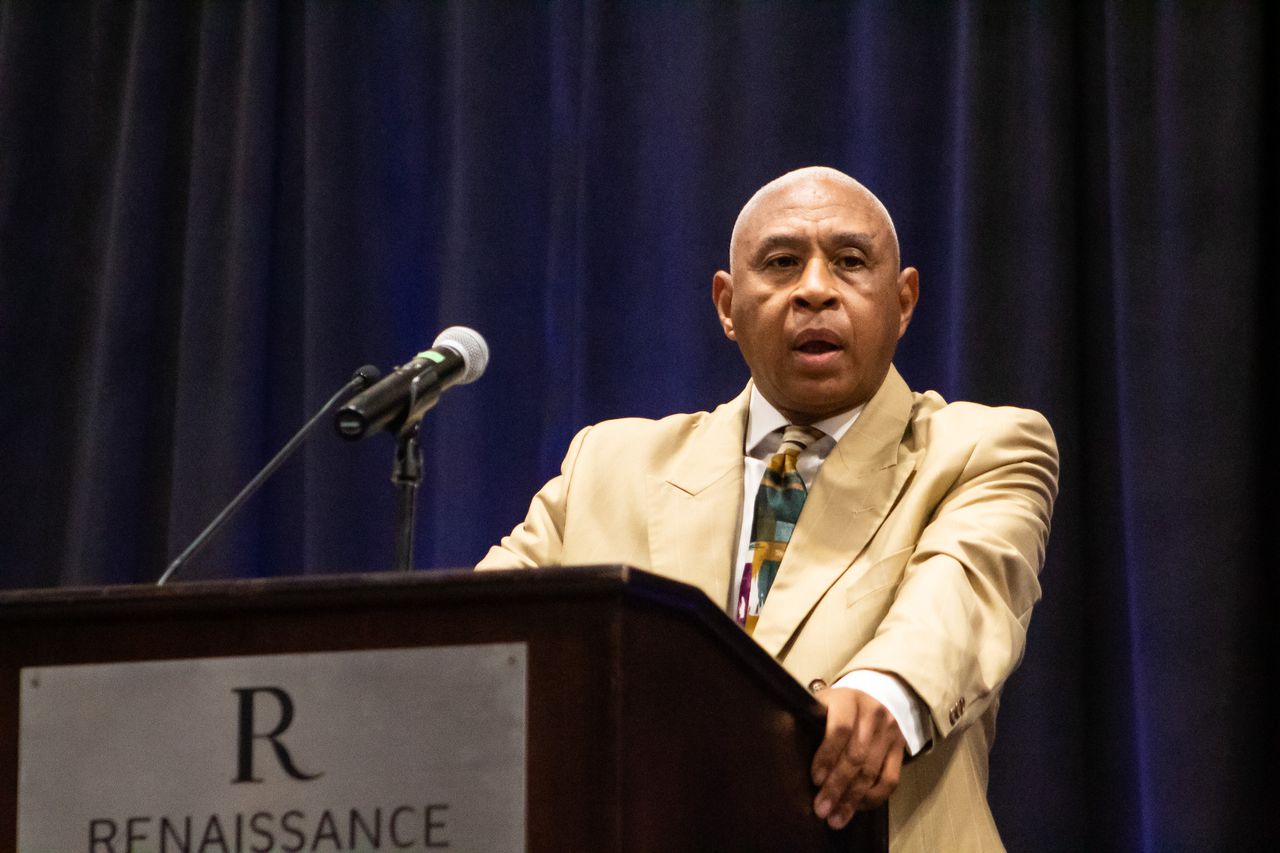Randy Kelley tells Alabama Democrats not to listen to ‘disgruntled losers,’ says ‘no one lost representation’
Leaders of the Alabama Democratic Party said they correctly and democratically passed new bylaws that eliminated some minority caucuses and reduced the power of others.
The bylaws were approved on a 63-49 vote by the State Democratic Executive Committee (SDEC) on Saturday after a contentious meeting that one faction of the Democrats called undemocratic, and which drew the attention of the chair of the Democratic National Committee.
The new bylaws eliminate the party’s youth, LGBTQ+ and disabled caucuses. Supporters of the bylaws said the caucuses, did not represent 15% of the executive committee.
The bylaws also reduced the powers of the affirmative action; Asian and Pacific Islander; Hispanic; and Native American caucuses “to monitor the affairs of the groups listed.”
The leadership of the party, aligned with minority affairs chair Joe Reed, said the old bylaws, approved in 2019, took power away from Black Democrats. In a “press release” that was not shared with the press, Randy Kelley, chairman of the Alabama Democratic Party, said the new bylaws “corrected the problems caused by the illegal bylaws passed by Doug Jones and (former DNC Chair) Thomas Perez four years ago.”
Attempts to reach Kelley on Tuesday were unsuccessful.
The release, acquired by the Reflector on Monday evening, said “no one lost representation.” It asked members to read the new bylaws and to “not pay attention to disgruntled losers.”
“The LGBTQ+ were not kicked out, the Native Americans were not kicked out, the Youth were not kicked out, the Asians were not kicked out, nobody was kicked out,” the release said. “NO ONE LOST REPRESENTATION. All persons who are in the SDEC will be represented based on their numbers in the Democratic electorate.”
Former U.S. Sen. Doug Jones said in an interview on Tuesday that the 2019 bylaws added more at-large officers and allowed members of minority caucuses more representation in the SDEC.
“In 2019, the party became more inclusive and gave voices to people who did not have voices at all in the party,” he said.
Jones said that accomplishment did not happen by diminishing Black Democrats’ representation. Instead, he said that adding the minority caucuses complimented Black participation.
The former senator said Black representation on the committee reflected Black voters being 60% of the Democratic electorate. The only demographic that was reduced was white democrats.
“Among at least, the youth caucus that was added and the LGBTQ caucus that was added, many of those – in fact, probably half of those – were also Black,” Jones said. “So they did increase the numbers of the minority caucus.”
The DNC would have never allowed bylaw changes that reduced the Black electorate, he said.
The new bylaws say the SDEC will “provide for representation as nearly as practicable of the diversity constituencies as indicated by their presence in the Democratic electorate of Alabama.” According to the bylaws, the chair of party, currently Kelley, can set the percentages that would provide that representation.
The statement from Kelley also accused Tabitha Isner, vice chair of the Alabama Democratic Party, of spending “every waking hour trying to undermine the current and progressive goals that we have put forward,” and that “losers lost.”
Isner said in an interview Tuesday that she doesn’t know why there is so much animosity towards her. People, even within the same political ideology, can disagree, but “to get things done, you have to work with people, even when you don’t like them,” she said.
“It’s hard to find two politicians who have not disagreed on something at some point,” she said. “And yet, we’re required to keep working together.”
She said that the party is not sending a message of unity. She said that it’s both “divisive and derisive,” and that it reenforces “a narrative of racial animosity that the vast majority of Democrats and Alabama are ready to be moving past.”
DNC Chair Jaime Harrison said in a tweet on Monday that Democrats “must lead by example.”
“Allegations surrounding Alabama’s state party meeting are troubling,” he wrote. “I’m grateful to those who raised concerns & we’re looking closely into the situation.”
Daniel Wessel, deputy director of communications at the Democratic National Committee, referred to Harrison’s tweet when contacted on Tuesday.
Jones said the fight over the bylaws was a clash of old and new ways.
“You have a new generation that wants to be engaged, that is trying to do things to move forward, to live up to Alabama’s promise, and that is inconsistent with the older generation maintaining control,” he said.
